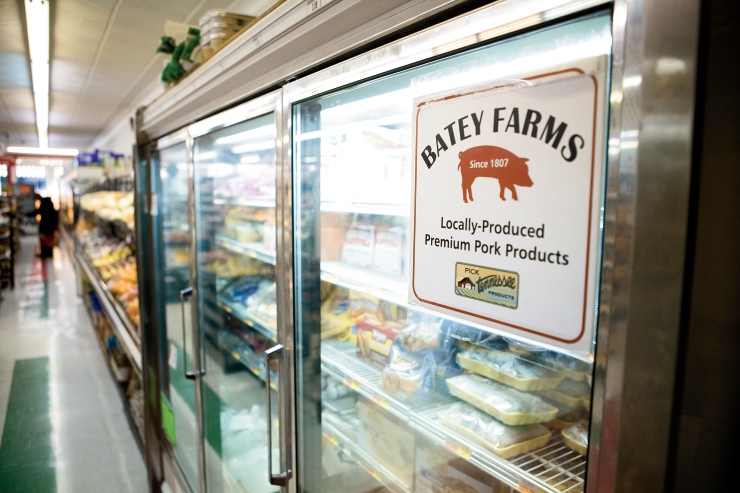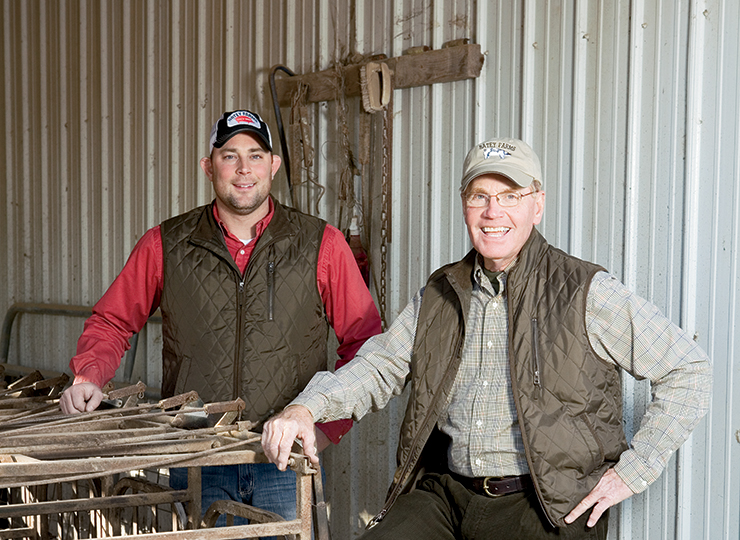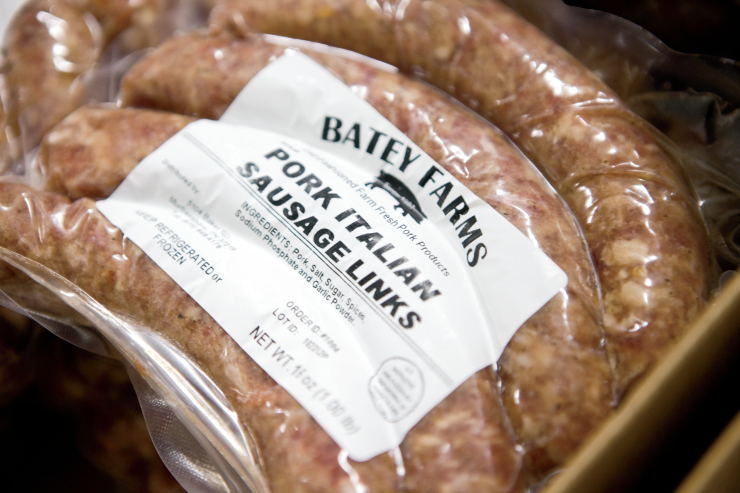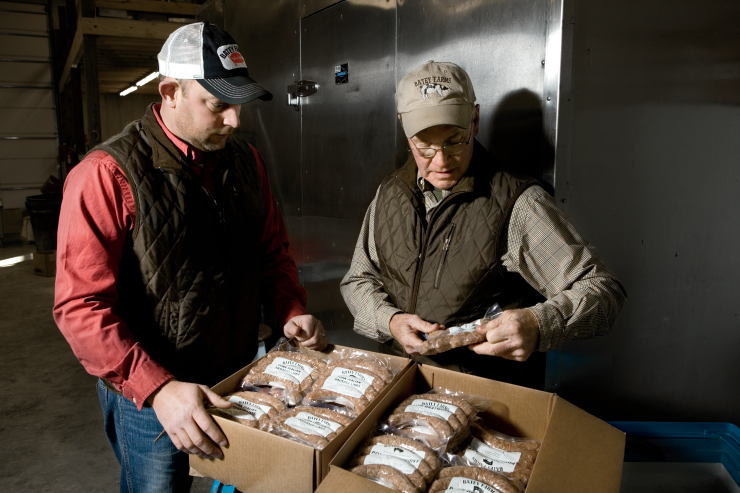Home > Tennessee > Tennessee Crops & Livestock > Tennessee Farmers Find New Markets for Farm-Fresh Meats
Tennessee Farmers Find New Markets for Farm-Fresh Meats
In partnership with: Tennessee Department of Agriculture

Read the descriptions of chef’s creations on menus in popular Tennessee restaurants and in addition to learning what’s in the dish, you are likely to learn the name of the farm that provided those ingredients.
Locally sourced food is a growing movement and one that increasingly includes meat as well as produce. Tennessee farmers are meeting consumers’ preference to purchase beef, pork, lamb, goat and poultry raised on local and regional farms.
“More and more consumers want to know where their products are coming from,” says Brandon Whitt of Batey Farms of Murfreesboro. Batey Farms is an eighth-generation, family-owned hog, row crop and hay farm. Whitt works with his father-in-law, John Batey, on the farm. “We sold sausage off the farm for 25 years by word of mouth around the community,” Whitt says. “With the increased interest in local products we saw an opportunity to build up the retail market and also educate consumers about our products and the connection between the farm and the table.”

Whitt says consumers play an important role in creating new opportunities for farmers. “We as producers have the opportunity to give the public what they are asking for with a private company such as ours,” he says. “We see our role as providing quality products and also teaching consumers that they can trust the products they are buying in the grocery store. We want to bridge the gap between farmers and the consumers.”
Batey Farms is a farrow-to-finish operation that generally keeps about 65 sows that are bred and between 450 and 550 hogs on the farm in production. Batey products are sold direct to consumers through some local markets and restaurants as well as from the farm.
Consumer education is important, Whitt says, noting that while Batey Farms once sold its hogs to a major label, the farm now sells entirely through its own retail outlets. He sees growth opportunities in the direct-to-consumer market.
“As people become more comfortable with local products, private labels and products like ours are going to be even more in demand as we move into the future,” Whitt says. “We don’t think this is a fad, we think it’s a trend that is going to become more popular. In the next five to 10 years there is going to be a greater demand for more regionally produced meat that’s not been shipped all over the country. We’re on the right path.”

Tony Slaughter has been farming since 1980, primarily in tobacco until 2006, but also in row crops, cattle, sheep and hogs. He currently has about 350 ewes and has marketed lamb to Food City, Fresh Market, Earthshare and other grocery stores. He’s working toward developing a direct-to-consumer lamb market.
“The problem is that I’m a farmer, not a marketer,” Slaughter says, but notes the growing demand for local meat could benefit his efforts. The Tennessee Department of Agriculture is helping with the marketing aspect for Slaughter and other farmers. The state’s Pick Tennessee Products program promotes farm products, and the department is working with farmers to open new markets for their products.

Slaughter, who has been selling sausage directly to consumers since he first started farming, says the increased customer interest in understanding what goes into products is good for farmers. And, he says, once consumers taste a farm product they are often hooked.
“Folks who are concerned about additives don’t have to be worried about that with our meat,” he says. “We have whole-hog sausage, and that is seldom done in the products in the grocery store. It’s the same as getting a tomato out of your garden in the middle of summer compared to buying a tomato the second week of January. There’s just no comparison.”



